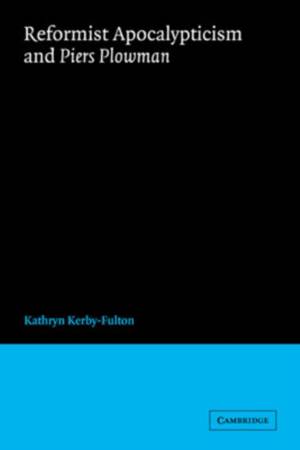
- Afhalen na 1 uur in een winkel met voorraad
- Gratis thuislevering in België vanaf € 30
- Ruim aanbod met 7 miljoen producten
- Afhalen na 1 uur in een winkel met voorraad
- Gratis thuislevering in België vanaf € 30
- Ruim aanbod met 7 miljoen producten
Zoeken
Omschrijving
This book addresses the need for scholarly attention to the field of alternative, non-Augustinian apocalypticism and its implications for the study of Piers Plowman. Kathryn Kerby-Fulton discusses the major prophets and visionaries of such alternative traditions, who are characterised by their denunciation of clerical abuses, the urging of religious reform, and an ultimate historical optimism. Her book offers a proposal for the importance of such traditions, particularly as represented in the writings of Hildegard of Bingen, to the understanding of Langland's visionary mode and reformist ideology. Dr Kerby-Fulton also explores the relevance of the prophetic mentality fostered by Joachite thought, and the reactionary response which it triggered in antimendicant eschatology. Above all, this book provides a stimulating challenge to assumptions that Langland's views of the course and end of history are wholly conventional, or easily explained by Augustinian eschatology. The outcome of this study of contexts for Piers Plowman suggests that Langland's position in relation to different apocalyptic traditions was at once more sophisticated and more original than scholars have hitherto realised.
Specificaties
Betrokkenen
- Auteur(s):
- Uitgeverij:
Inhoud
- Aantal bladzijden:
- 272
- Taal:
- Engels
- Reeks:
- Reeksnummer:
- nr. 7
Eigenschappen
- Productcode (EAN):
- 9780521041461
- Verschijningsdatum:
- 10/09/2007
- Uitvoering:
- Paperback
- Formaat:
- Trade paperback (VS)
- Afmetingen:
- 152 mm x 229 mm
- Gewicht:
- 403 g

Alleen bij Standaard Boekhandel
+ 164 punten op je klantenkaart van Standaard Boekhandel
Beoordelingen
We publiceren alleen reviews die voldoen aan de voorwaarden voor reviews. Bekijk onze voorwaarden voor reviews.











